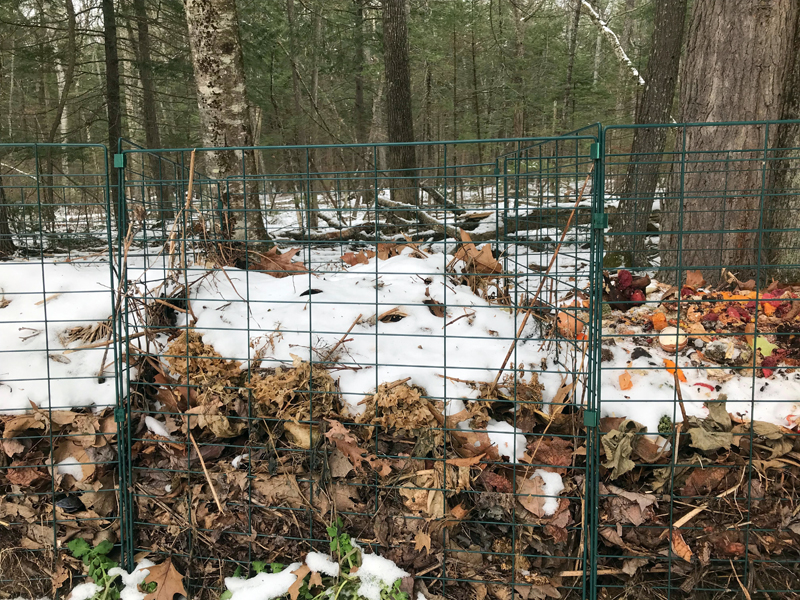
Snow-covered compost quietly breaks down on a winter day. (Photo courtesy Lee Emmons)
If you’re looking for a way to lower your impact on the environment, consider composting. If you already compost, you can expand what you choose to divert from the garbage. For those unfamiliar with the term, composting is the recycling of organic materials. Backyard gardeners and farmers often compost, as they use the final product on their gardens. I also compost because I want to reduce what I throw out.
The primary ingredients of any compost pile are kitchen scraps and yard debris, like fallen leaves. Common compostable materials include vegetable peelings, coffee grounds, old bread, expired condiments, eggshells, and freezer-burned foods. To avoid attracting animals, do not compost meat or dairy products. Compost pails are easy to find to get you started.
There is a wealth of information online about how to set up a composting system. The University of Maine Cooperative Extension also has resources to get you started. However, there are a few things to consider. Who will consistently be taking the compost out? Are you prepared to compost year-round? Do you have a site that is close to your home but out of the way? Compost systems do not add curb appeal if they are untended, smelly, or covered with trash.
Depending on what you compost and what type of system you use, your old food scraps will attract wildlife. The easiest way to reduce this attraction is by not composting meat and bones.
Crows will still visit your pile regardless, but they are hardly a threat to your health. Worms, which help break down compost, are eaten by critters like toads. Look for amphibians, including salamanders, in or near your pile. Raccoons will raid at night if enough appetizing things are left.
As any backyard composter will tell you, the key to success is consistency. Once you stop throwing out your old coffee grounds or salad leftovers, it will become a habit. Composting will eventually become automatic. Rather than disposing of everything in the trash, you’ll find that you can recycle most of your old food or gone-by greens.
According to the U.S. Environmental Protection Agency, Americans produce over 4 pounds of trash per person each day. Winding up in landfills, thrown-out organic materials entombed in plastic emit methane, a potent greenhouse gas. Rather than contributing to these numbers, backyard composters can help reduce the amount of trash collected. In terms of food waste, it is far better to compost than to toss everything out.
There’s no wrong way to compost. If the idea of starting a backyard pile is too daunting, check if your town collects organic materials. Pig farmers also welcome food scraps. For more information, feel free to contact me.
(Lee Emmons, of Newcastle, is an amateur naturalist and former educator. He can be reached at emmons.lee@gmail.com.)






